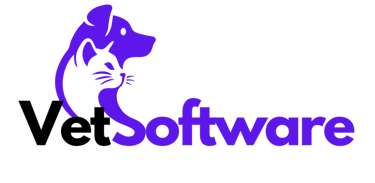
What is a Veterinary Clinic Management System in Malaysia?
Veterinary clinics in Malaysia are going digital, but what exactly is a Clinic Management System (CMS), and why are more practices adopting one in 2025?


What is a Veterinary Clinic Management System in Malaysia?
Veterinary clinics in Malaysia today face an entirely different set of challenges than they did just a few years ago. With rising patient loads, stricter data laws, and increasing expectations from pet owners, many clinics are turning to digital solutions to help them keep up. At the heart of this shift is something called a Veterinary Clinic Management System, often shortened to vet CMS.
A CMS is essentially a software system that helps a veterinary clinic run more smoothly. It’s designed to handle a clinic’s daily operations, from managing patient records to issuing invoices, booking appointments, and even tracking medication stock. While these systems used to be considered optional, or something only big hospitals needed, they’ve now become essential tools for clinics of all sizes, especially here in Malaysia.
Why Clinics Are Going Digital
There’s a reason why digital adoption among veterinary clinics has been accelerating. One major factor is compliance. Starting in 2024, Malaysia’s Inland Revenue Board (LHDN) began rolling out mandatory e-Invoicing requirements. By 2026, all businesses, including vet clinics, will be required to submit invoices electronically through the national MyInvois platform. Clinics still relying on manual invoices or generic POS systems may soon find themselves out of step with national policy.
Then there’s the Personal Data Protection Act (PDPA). With recent amendments increasing penalties and tightening rules around how customer information is stored and used, it’s more important than ever for clinics to take data privacy seriously. A good CMS can help with this by providing secure, structured data management that aligns with regulatory expectations.
Beyond compliance, though, the shift is also driven by everyday clinic realities. Paper files go missing. Handwritten notes are hard to interpret. Appointment books get overbooked or forgotten. And as the number of pet owners in Malaysia continues to rise, with over half of Malaysian households now owning pets, the demand for fast, efficient, and professional clinic services is growing just as quickly.
What Can a Veterinary CMS Actually Do?
While every system is different, most veterinary CMS platforms in Malaysia share a few core functions.
At the center of everything is the electronic medical record (EMR). This is where a clinic stores patient histories, things like vaccination records, consultation notes, surgeries, allergies, and lab results. With a digital system, everything is in one place, easy to search, and instantly available when the pet returns for a follow-up.
Then there’s billing and invoicing. Most CMS platforms allow clinics to create invoices directly from the consultation page, link products or services automatically, and apply discounts or packages where relevant. Some systems also support integration with the MyInvois e-Invoicing platform, which helps clinics comply with Malaysia’s tax laws without extra paperwork.
Appointment scheduling is another key area. Many platforms provide calendar tools that allow clinics to manage bookings by veterinarian or treatment room. Some may also offer client-facing booking tools, either through a separate app or web-based portal, though how seamless or advanced these tools are can vary depending on the provider.
Inventory tracking is also a common feature. A good CMS can monitor medication usage, alert staff when stock is running low, and help prevent over-ordering or expired products. For clinics that also sell pet food, supplements, or over-the-counter items, this can be a major benefit.
Some platforms go beyond the basics, offering reporting dashboards, marketing tools, or even features like AI-generated medical summaries, but availability varies, and clinics should evaluate which features are genuinely useful for their workflow.
Built for Malaysia: Why Local CMS Systems Matter
While international software platforms exist, Malaysian clinics typically benefit most from solutions that are designed, or at least adapted, specifically for our local context.
Firstly, there’s pricing. Local vendors tend to offer subscriptions in ringgit, not foreign currencies. There’s also more flexibility in how plans are structured, which can make the systems more accessible for smaller practices.
More importantly, local systems are often built with Malaysian compliance needs in mind, whether that’s integration with LHDN’s MyInvois system or workflows that reflect how clinics here typically operate.
Some also provide bilingual support (English and BM), offer local hosting or support teams, and understand the on-the-ground reality of running a clinic in Malaysia, something that international platforms often miss.
Common Local Providers
Several veterinary CMS platforms are currently active in Malaysia. These include systems that have been developed locally, as well as platforms adapted from human healthcare or broader clinic management software. Some of the more widely adopted names include:
Platforms designed specifically for vet clinics, offering cloud-based tools and integrations built around how Malaysian clinics operate.
Systems that are part of a broader pet ecosystem, including booking portals, pet-owner apps, or even insurance integration, aimed at connecting clinics to the wider pet care industry.
Generalist medical or wellness software platforms that have added veterinary modules, sometimes incorporating newer features like AI-powered support or automation tools.
Each of these systems has its own strengths and specializations. Some prioritize ease of use and local support. Others focus on feature depth, automation, or business analytics. And some are still evolving, with features being rolled out progressively across 2025.
Rather than focusing on which system does what better, it’s more useful for clinics to consider what fits their current operations, and what will scale with them over time.
Is It Worth Switching If You’re Still on Paper?
Many clinics still manage just fine using paper files, Excel spreadsheets, or simple POS systems. But as the industry grows, and as more clients expect professional service, the gap between digital and non-digital clinics is widening.
Switching to a CMS can reduce human error, improve workflow efficiency, and make a clinic feel more modern to clients. It can also make collaboration between vets and support staff easier, especially in larger teams.
And with regulations like PDPA and e-Invoicing now unavoidable, going digital is less about luxury and more about necessity.
Looking Ahead
Veterinary software is no longer just a tool for big city hospitals. It’s becoming the backbone of day-to-day operations for clinics across Malaysia, from solo practices to multi-location chains.
As the market matures, we’ll likely see more integrations between CMS platforms and other services — like insurance, diagnostics, or even delivery logistics for pet meds. Some providers are already exploring these add-ons, while others are focusing on making core operations more stable and intuitive.
What’s clear is that for any clinic aiming to grow, stay compliant, and serve clients better, adopting a Malaysian-ready CMS is not just a smart move — it’s a future-proof one.
Stay updated with the latest veterinary software trends.
© 2025. All rights reserved.
